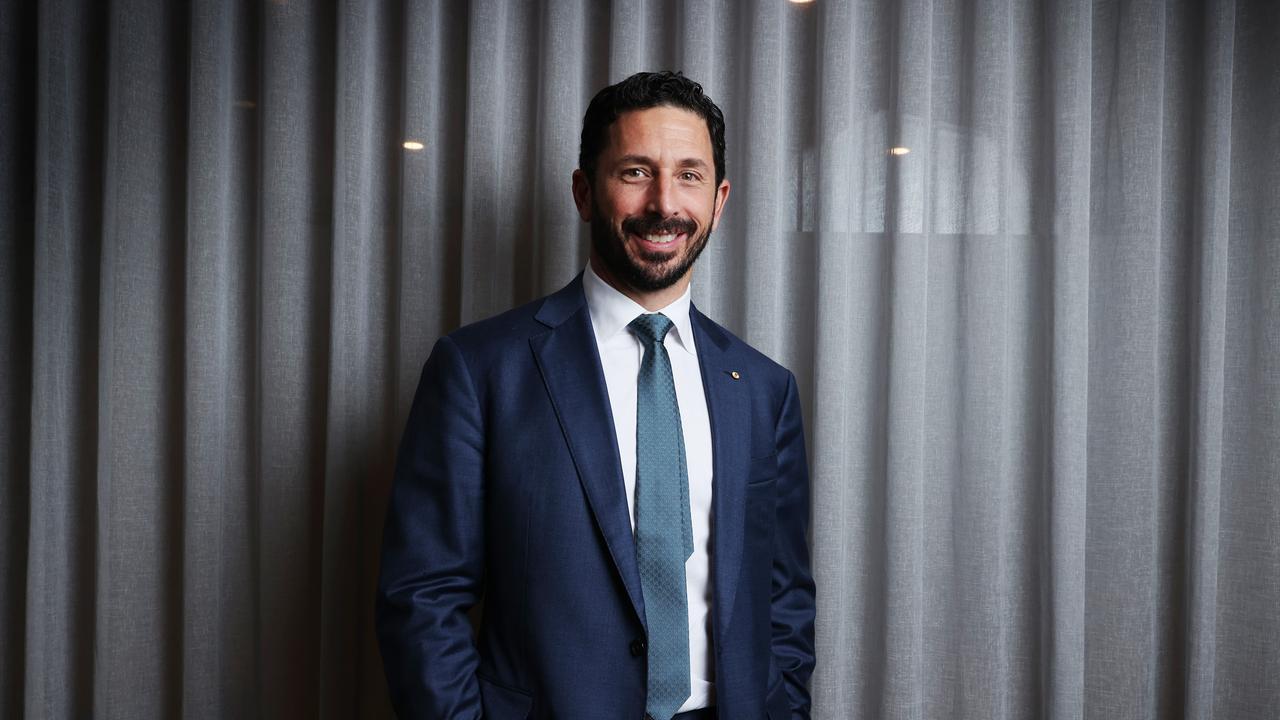Sky’s the limit as commercial drones take off
SPONSORED: Drones are forecast to save billions of dollars in costs for industry, putting Sphere Drones on path to rapid growth.
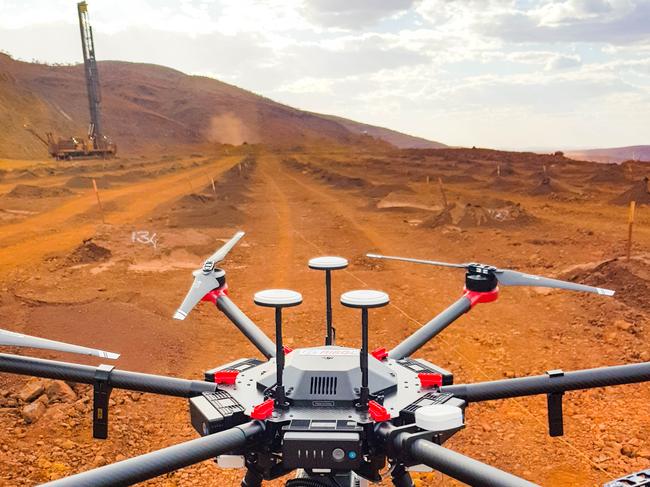
As a young boy Paris Cockinos spent his weekends tinkering with remote-controlled aeroplanes in his father’s two-way radio workshop. A third generation member of a family business that sold tech products, Cockinos had entrepreneurship in the blood.
So when he started messing around with drones as a teenager, he thought there might be an opportunity.
With a $10,000 loan from his father, Cockinos purchased six drones and within two weeks had sold the lot. By Christmas of 2012, at the ripe age of 19, he’d sold 100 drones and a business was born.
Now, Paris Cockinos of Sphere Drones has his eyes on a $100m revenue company that is riding the wave of commercial drones, which is exploding across the country. Already he counts among his clients Rio Tinto, Fortescue Mining and Surf Life Saving Australia.
“There are 2200 organisations in Australia with licences to operate drones in Australia,” Mr Cockinos said. “And 700 people are being trained every month to become drone pilots. The market potential is enormous.”
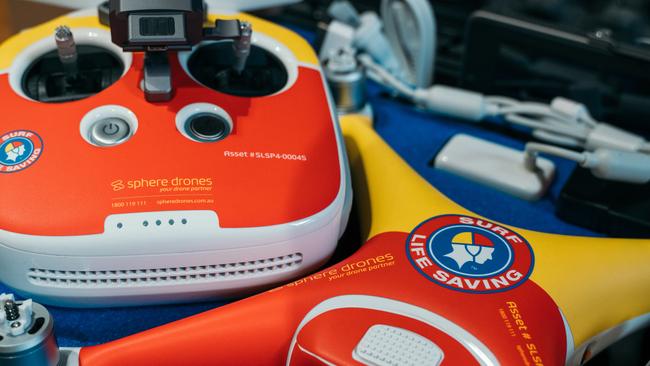
A recent report by Deloitte Access Economics commissioned by the Department of Infrastructure, Transport, Regional Development and Communications found the growth of the drone sector is expected to deliver significant cost savings to businesses of about $9.3bn over the next 20 years, with $2.95bn of efficiencies in agriculture, forestry and fisheries industries, $2.4bn in mining and $1.34bn in construction.
As companies cotton on to the benefits, they are increasingly looking not just for the drones themselves but also training and support, maintenance and advice.
That’s where Sphere Drones comes in. From those humble beginnings selling drones to enthusiasts online, Sphere Drones is building out a holistic solutions business that helps companies ramp up the benefits from running fleets of drones. So far they have assisted 3000 corporate clients in that journey.
An early client Mr Cockinos picked up while still in university was Sydney Water. While studying an engineering degree, he devised a solution for the utility to use drones to take offshore water samples from the Dover Heights sewage outfall, freeing up staff from heading out in a vessel.
From there he picked up clients including Sydney Trains, police and fire departments in NSW and Queensland, parks and wildlife services and construction companies.
Surf Life Saving Australia has been a particularly large contract, growing from a trial of 30 drones for shark monitoring and swimmer safety to 190 drones today.
Big mining companies have used the drone to scan inventory on mine sites and the increased sophistication of drones means they can take on tasks that are highly technical and dangerous.
“We can send a drone fitted with lasers down into the drill hole to capture its depth,” Mr Cockinos said.
“Typically it would take a team member two days to measure a field of holes. With drones we can do that in two hours.”
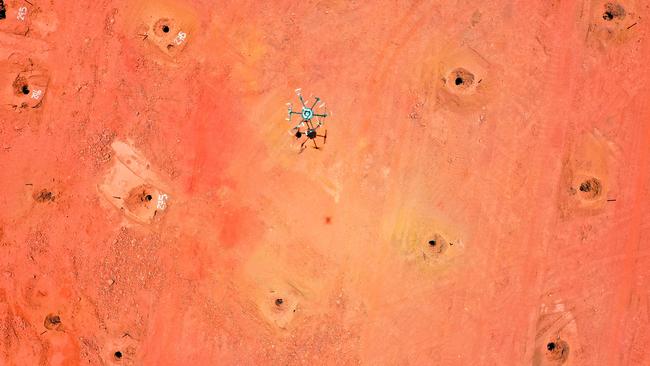
The rush of companies finding uses for drones has meant the business has evolved from sourcing and renting drones to include a maintenance services play that helps manage and maintain equipment, as well as ensuring all regulatory requirements are met.
But managing all of those clients, as well as upselling them into more than a one-off customer has required a significant overhaul of operations.
“We were using Excel to collect our customer records and information was everywhere,” Mr Cockinos said.
Now all customer data is centralised in Salesforce, giving not only a holistic view of the entire customer base across the range of services Sphere Drones provides, but also insights into how to convert customers into higher-value services, something he said had been the single most transformational product for his business in terms of scale.
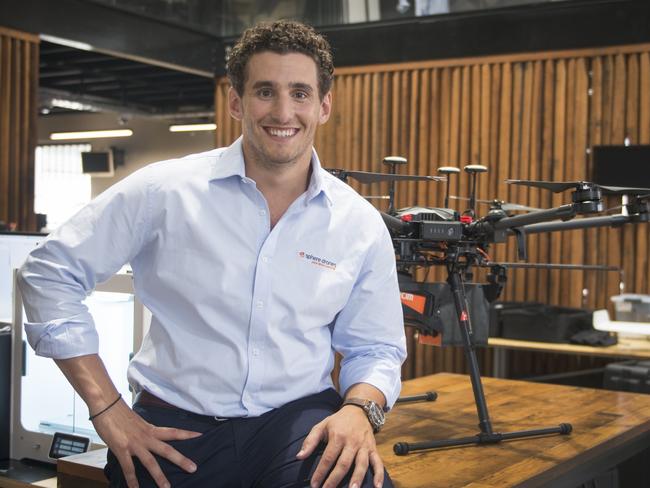
“We’re capturing mounds of data on our customers that allows us to follow up with them to ensure they are being looked after;” he said. “ Every time we sell a drone, we capture key details like customer info but we also store information on the pilots who are using drones, the status of their licences, the maintenance history of the drone itself and the lifetime value of the drone.
“If someone comes to us looking for a new part, or a specific technical product to fit to meet a purpose, that gives us an in to have a deeper conversation about their wider needs. Everyone knows that whatever information goes into the system will power the next stage of growth.”
Having such a comprehensive view of customer needs, and automated processes for customer contact has allowed Sphere Drones to trade even in the most dire of situations.
Late last year Mr Cockinos had a near-fatal accident on his motorbike that saw him “five minutes from death”. But his 27 strong team had built such strong collaboration around the company’s data platforms that it had little impact on operations.
“I spent my recovery in hospital watching dashboards and seeing the business tick along,” he said.
Even with Covid, Sphere Drones is growing at 30 to 40 per cent this year, and is forecast to beat that next year. All profits have been ploughed back into the business and the company is exploring a capital raise to build out its managed services platform.
That initial $10,000 from Mr Cockinos Sr is the only money Sphere Drones has taken on so far in building a multimillion revenue business.
Paris hasn’t paid it back yet, but he’s given his father “a few presents along the way”.


